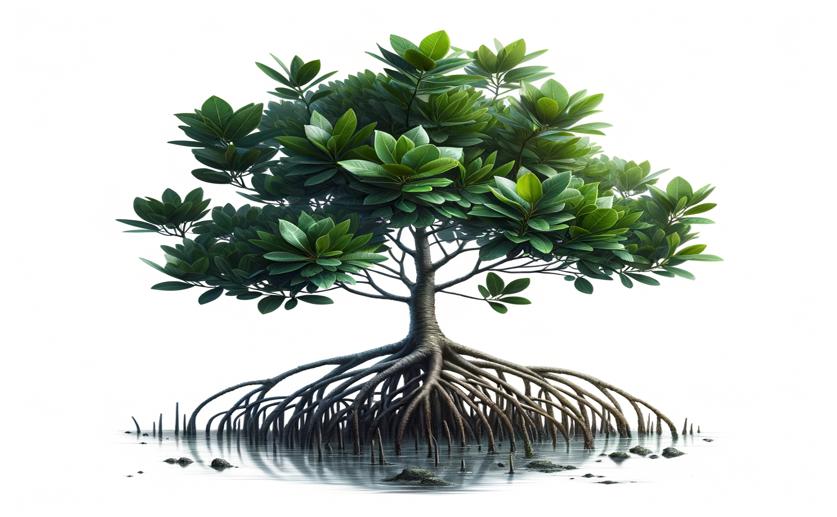
Understanding Salt-Related Genes in the Leaves of Mangrove Trees
Jim Crocker
6th June, 2024

Image Source: Natural Science News, 2024
Key Findings
- The study from Hainan Normal University focused on Avicennia marina, a mangrove that thrives in high salinity environments
- Researchers identified 687 lncRNAs associated with short-term salt stress and 797 with long-term salt stress in Avicennia marina leaves
- These salt-associated lncRNAs are involved in crucial processes like oxidation-reduction, photosynthesis, and various metabolic activities, helping the plant manage salt stress
GeneticsPlant ScienceMarine Biology
References
Main Study
1) Identification and analysis of short-term and long-term salt-associated lncRNAs in the leaf of Avicennia marina
Published 5th June, 2024
https://doi.org/10.1186/s12870-024-05216-z
Related Studies
2) Non-Coding RNAs in Legumes: Their Emerging Roles in Regulating Biotic/Abiotic Stress Responses and Plant Growth and Development.
3) PLncDB: plant long non-coding RNA database.



 5th June, 2024 | Jim Crocker
5th June, 2024 | Jim Crocker